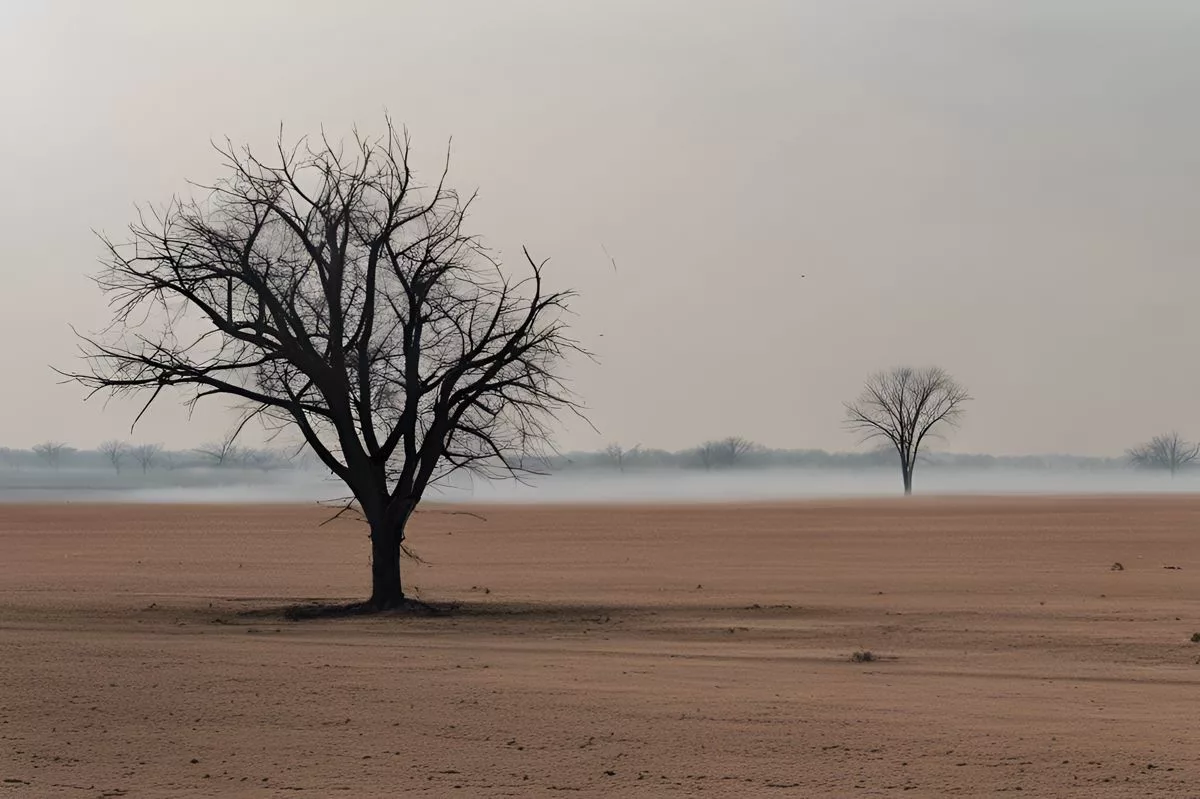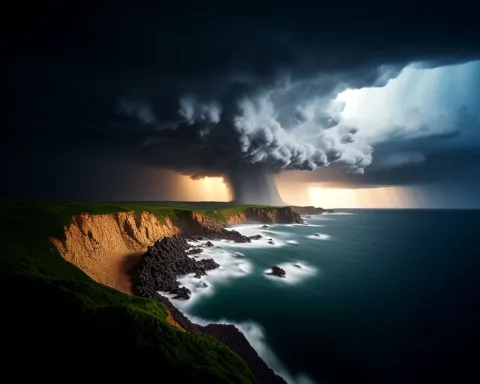The Western Cape is facing a potentially turbulent fire season due to excessive rainfall, which has led to an increase in vegetation. This surge in growth has created a significant fire hazard, which will be further intensified by predicted high temperatures and winds. In the previous year, over 9,500 fires ravaged more than 135,000 hectares of land, leading authorities to allocate significant funds to prepare for the inevitable fire season. The region is in the ironic situation of being endangered by its own natural beauty.
What is the Unfolding Fire Season Threat in Western Cape?
The excessive rainfall in the Western Cape has led to an increase in vegetation, creating a significant fire hazard for the upcoming fire season. The predicted high temperatures and winds will further intensify the risk of fires. In the previous year, the province was ravaged by over 9,500 fires, which obliterated more than 135,000 hectares of land. Authorities have allocated significant funds to prepare for the inevitable fire season.
The Beauty and the Beast of Western Cape
The Western Cape, universally admired for its awe-inspiring aesthetics and diverse environmental topography, is girding its loins for what could be a turbulent fire season. This looming threat is linked to the extraordinary amount of rainfall experienced over the past winter, leading to excessive plant growth — a significant fire hazard.
Samkelo Magwala, a meteorologist with the South African Weather Service (SAWS), stressed the role of rainfall in assessing the risk of wildfires. He stated that the amount of precipitation received has a direct bearing on both the frequency and severity of these wildfires.
Interestingly, this year’s downpours have smashed all previous records. For instance, Newlands, host to the esteemed Kirstenbosch National Botanical Gardens, was drenched with over 500mm of rain in July alone. This figure represents the highest recorded rainfall for this month since 1999.
A Threat Lurks Behind Excessive Rainfall
However, this flood of water is a mixed blessing as we gear up for the forthcoming fire season. Wouter Kriel, the spokesperson for Local Government MEC Anton Bredell, validated the projected impact of the torrential rain on the fire season. Kriel cautioned that the surge in vegetation, brought about by the heavy rainfall, will elevate the risk of fires. He also mentioned that the areas where roads have been eroded, restricting the movement of fire trucks and hindering access to critical locations, are other areas of concern.
An additional source of concern stems from the predicted weather conditions for the upcoming summer. The region is expected to be seared by “extremely high” temperatures, further intensified by episodes of high winds. These conditions, coupled with the increased amount of vegetation, create a potent mix for a high-risk fire situation. Kriel elucidated how the intense heat and winds can rapidly dehydrate the vegetation, causing even currently waterlogged areas to dry out swiftly, thereby increasing their vulnerability to fires.
The Terror of Past Fire Seasons
To grasp the potential magnitude of this imminent threat, one only needs to examine the statistics from past fire seasons. In the previous year, the province was ravaged by over 9,500 fires, which obliterated more than 135,000 hectares of public and private land. The year before witnessed more than 7,200 wildfires laying waste to the Western Cape.
Preparations for the Inevitable
In anticipation of the impending fire season, which typically kicks off in November, significant funds have been allocated by the authorities. A sum of approximately R16 million is dedicated to aerial support, and an extra R1 million is reserved for specialized ground support teams. These funds supplement the resources provided by municipal bodies and conservation organizations.
Confronted with this potential fire disaster, the Western Cape finds itself in the peculiar situation of being endangered by its own natural beauty, a harsh paradox not lost on its inhabitants and workers. As we brace for the worst, we can only hope that the preventive measures in place will suffice to safeguard this splendid landscape and the communities that call it home.
1. What is the cause of the potential fire hazard in Western Cape?
Excessive rainfall in Western Cape has led to an increase in vegetation, creating a significant fire hazard for the upcoming fire season.
2. How will the predicted high temperatures and winds further intensify the fire risk in Western Cape?
The predicted high temperatures and winds will further intensify the risk of fires by rapidly dehydrating the vegetation, causing even currently waterlogged areas to dry out swiftly, thereby increasing their vulnerability to fires.
3. What was the impact of the previous year’s fire season in Western Cape?
In the previous year, over 9,500 fires ravaged more than 135,000 hectares of public and private land in Western Cape.
4. What preparations have been made for the upcoming fire season in Western Cape?
Significant funds have been allocated, including approximately R16 million for aerial support and an extra R1 million for specialized ground support teams, to supplement the resources provided by municipal bodies and conservation organizations.
5. How has the excessive rainfall impacted the risk of wildfires in Western Cape?
While the rainfall has broken all previous records, the surge in vegetation brought about by the heavy rainfall will elevate the risk of fires, along with areas where roads have been eroded, restricting the movement of fire trucks and hindering access to critical locations.
6. What is the paradoxical situation facing Western Cape?
The Western Cape is facing the ironic situation of being endangered by its own natural beauty as the excessive rainfall, which has led to an increase in vegetation, has created a significant fire hazard for the upcoming fire season.












